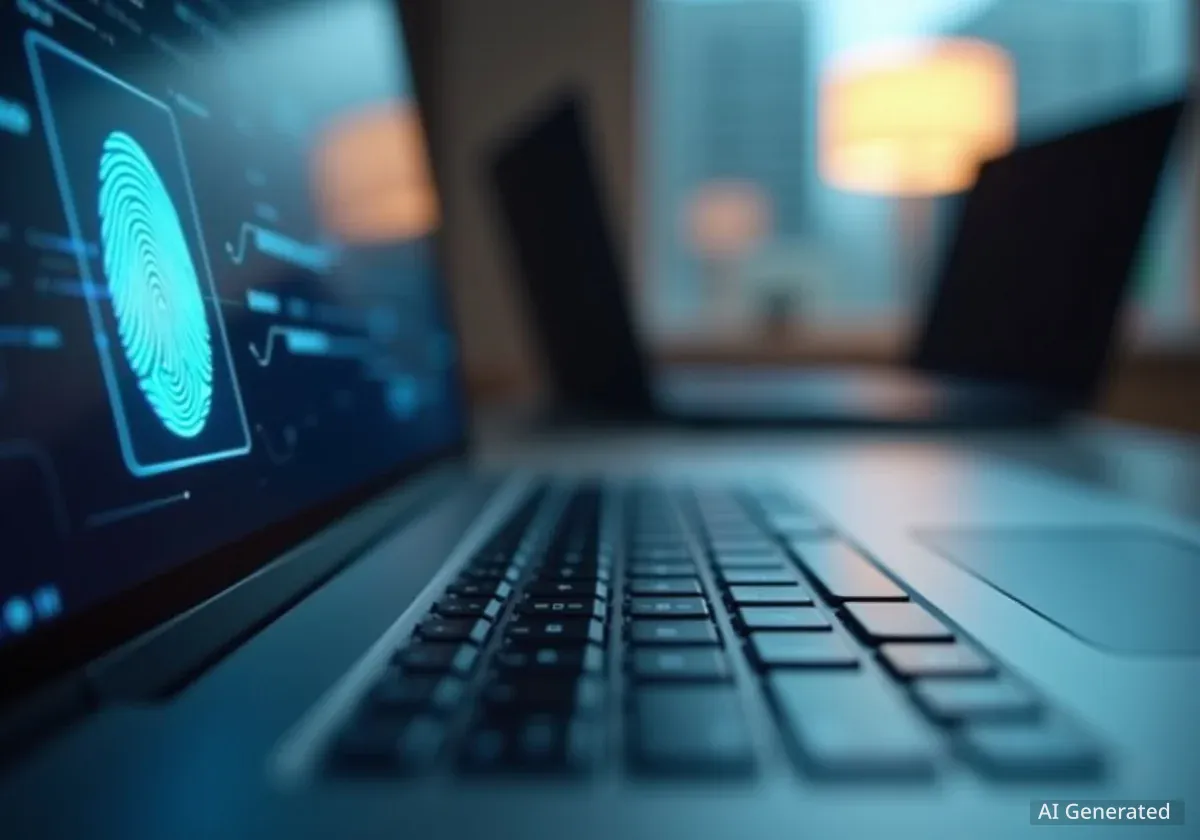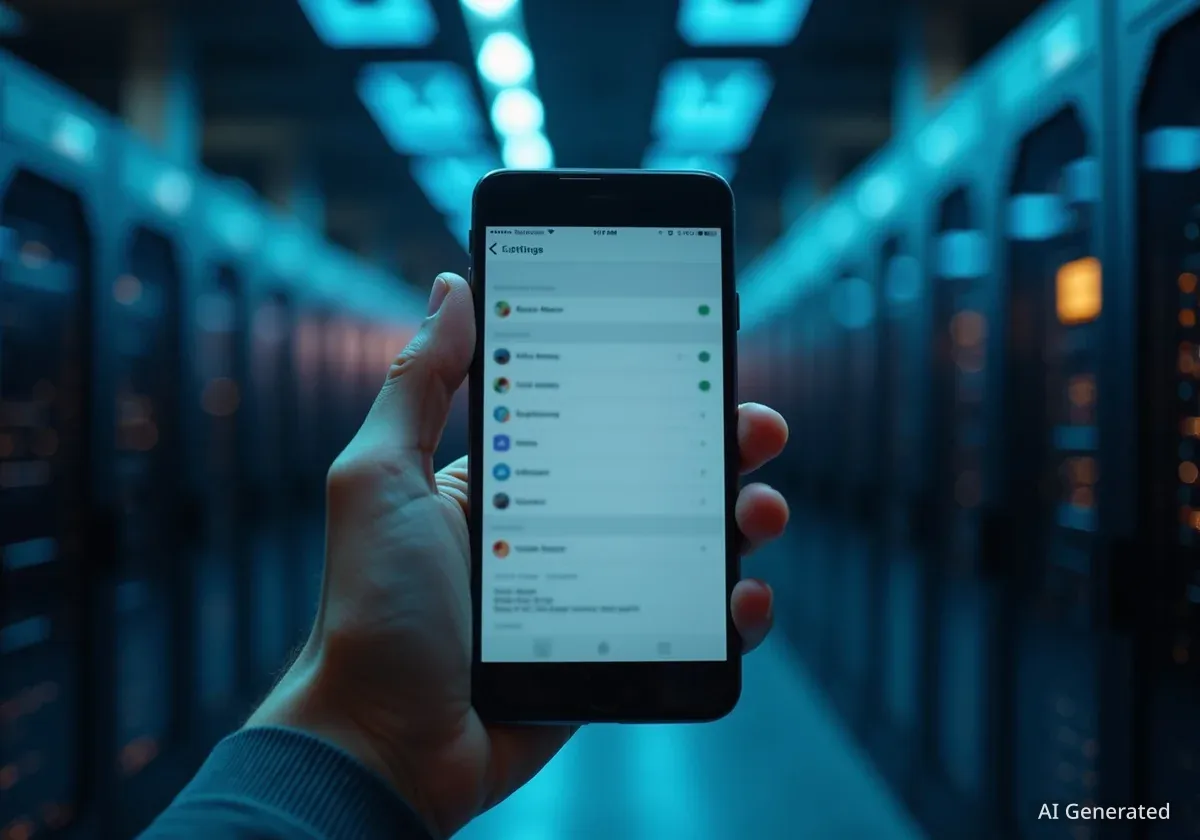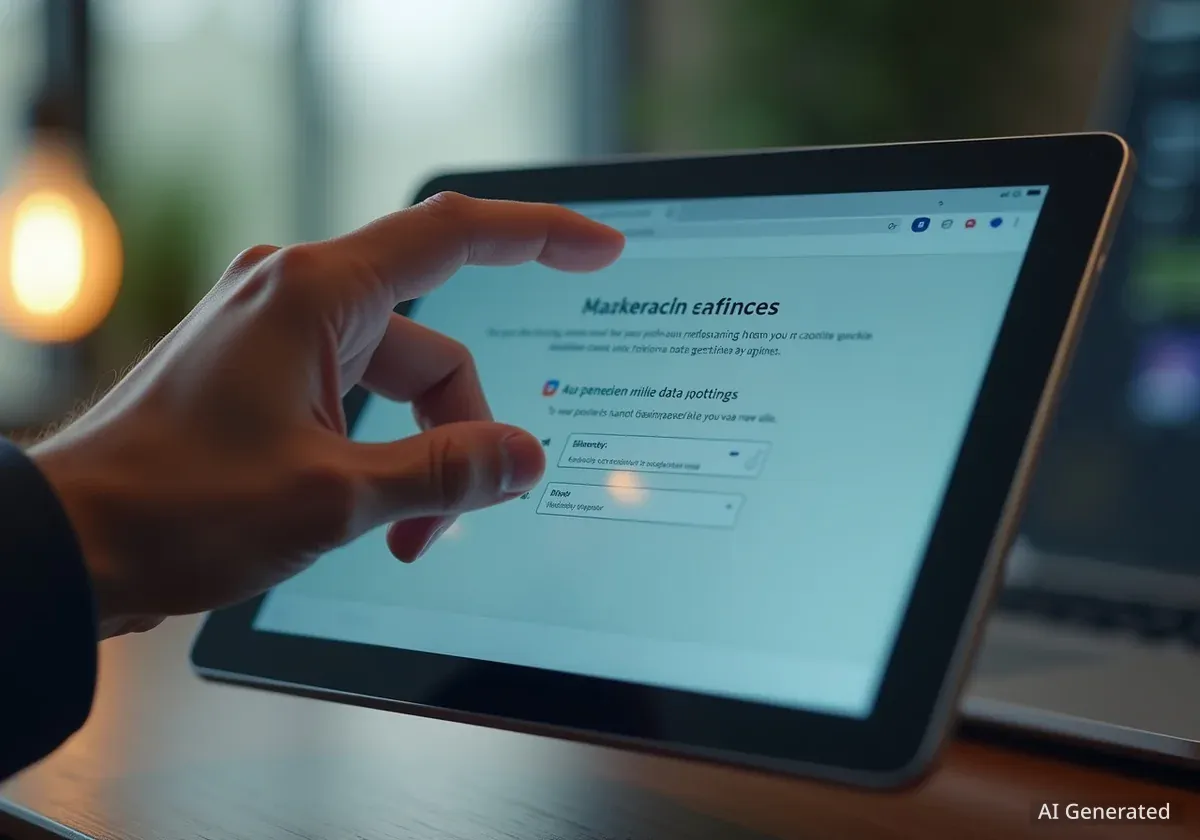The identity verification company Clear is expanding the reach of its business-focused platform, CLEAR1, through new partnerships with Docusign and Fidelity National Financial. These collaborations will integrate Clear's biometric technology into electronic document signing and real estate transactions, aiming to combat rising digital fraud.
The move places Clear's facial recognition technology directly into high-stakes digital workflows, addressing concerns over identity theft and forgeries amplified by generative AI. The partnerships signal a broader push to establish biometric verification as a standard for secure online agreements and property closings.
Key Takeaways
- Clear has partnered with Docusign to integrate its biometric identity verification into the electronic signature process.
- A separate agreement with Fidelity National Financial will embed Clear's technology into real estate title and escrow services.
- The collaborations are designed to prevent identity fraud, which is becoming easier with AI-powered document forgery tools.
- These deals expand the use of CLEAR1, a B2B platform launched in June, which already serves clients like Greenhouse and T-Mobile.
Docusign Partnership Aims to Secure Digital Agreements
Clear and Docusign have introduced a new solution named "Docusign ID verification with Clear." This product combines Clear's facial biometric technology with Docusign's widely used electronic signature and agreement management tools. The integration allows businesses to verify the identity of signatories with greater certainty.
The primary goal is to address the increasing risk of identity fraud in digital transactions. As artificial intelligence makes it easier to create convincing fake documents, verifying a person's identity has become a critical security step for businesses.
Addressing a Growing Threat
The partnership responds to a significant trend in cybersecurity. According to a forecast from Gartner, the problem of fraudulent digital identities is expected to grow substantially. The research firm predicts that by 2028, as many as one in four candidate profiles submitted for job applications worldwide could be fake.
This statistic highlights the vulnerabilities in many current digital processes, from hiring to financial agreements. By adding a biometric layer, the companies aim to make it much harder for bad actors to use stolen or fabricated identities.
What is CLEAR1?
CLEAR1 is the business-to-business (B2B) digital identity platform from Clear, launched in June. While many consumers know Clear for its airport security lanes, CLEAR1 is designed for companies to integrate secure identity verification directly into their own applications and workflows. Its first announced customers included the hiring platform Greenhouse and mobile carrier T-Mobile.
Docusign CEO Allan Thygesen emphasized that the solution is designed to enhance security without creating a complicated process for users. Many businesses are hesitant to adopt fraud prevention measures that could frustrate customers or slow down transactions.
"Together with Clear, Docusign is leading the way in ensuring that businesses don’t have to choose between security and a seamless customer experience," said Thygesen. He added that the partnership sets "a new standard for identity verification in digital agreements."
For users, the process is designed to be straightforward. Clear's existing 33 million members can verify their identity instantly using a selfie. New users can enroll for a free account directly within the Docusign workflow, making the security feature accessible to a broad audience.
Clear Enters Real Estate to Fight Transaction Fraud
In a separate but related expansion, Clear is bringing its CLEAR1 platform into the real estate sector through a deal with Fidelity National Financial (FNF), a major provider of title insurance and transaction services. FNF and its subsidiary, F&G Annuities & Life, Inc., will integrate the biometric technology into their operations.
The technology will be embedded within FNF’s inHere digital platform, which manages title and escrow processes for property transactions. This is a direct response to what the company describes as a surge in real estate fraud across the United States.
Protecting High-Value Transactions
Real estate transactions involve large sums of money and sensitive personal information, making them a prime target for fraudsters. Scams often involve impersonating a buyer, seller, or real estate agent to divert closing funds to a fraudulent account.
A Growing Problem in Real Estate
According to the FBI's Internet Crime Complaint Center (IC3), real estate and rental scams resulted in over $446 million in reported losses in 2023. Stronger identity verification at key points in the transaction process is seen as a critical defense against these schemes.
By requiring biometric verification, FNF aims to ensure that the individuals involved in a transaction are who they claim to be, adding a powerful layer of security to the closing process.
"Our partnership with Clear demonstrates our ongoing commitment to innovation and our dedication as an industry leader to stay ahead of emerging threats," stated Mike Nolan, CEO of Fidelity National Financial. "By integrating Clear’s biometric technology directly into our operational processes... we’re reinforcing the essential role that title insurance and title companies play in the real estate ecosystem."
This is not Clear's first venture into the property sector. In late 2023, the apartment membership platform Landing also integrated Clear's identity verification for its users, indicating a growing demand for biometric security in housing-related services.
A Strategic Push for Biometric Standards
These partnerships reflect a broader strategy by Clear to position its identity platform as an essential tool for trust in the digital economy. The company's CEO, Caryn Seidman Becker, framed the collaborations as fundamental to building a more secure online world.
"Identity is the foundation of trust and Clear ensures total identity integrity and frictionless experiences," Seidman Becker said. She noted that the Docusign partnership helps bring this vision to life by "strengthening trust, simplifying processes and setting a new standard for identity in high-stakes digital workflows."
The expansion of CLEAR1 into diverse industries like human resources, financial services, and real estate suggests a market-wide shift. Companies are increasingly recognizing that traditional identity verification methods, such as knowledge-based questions or document scans alone, are no longer sufficient to combat sophisticated fraud techniques.
As digital transactions become the norm for everything from signing employment contracts to buying a home, the demand for reliable and user-friendly identity verification is set to grow. Clear's recent deals with industry leaders like Docusign and FNF position it as a key player in defining the future standards for digital trust.





